Current News
/ArcaMax

Madre fire spreads to 70,800 acres in rural San Luis Obispo County
The largest wildfire in California this year has grown to 70,800 acres in San Luis Obispo County and poses an immediate threat to life, according to the California Department of Forestry and Fire Protection.
The Madre fire sparked around 1 p.m. on Wednesday in a rural area of the county. The fire has burned one structure and is 10% contained, ...Read more

US ambassador says 'win-win' trade deal with Canada is within reach
(Bloomberg) — The U.S. ambassador to Canada gave an optimistic assessment of trade talks between the countries, playing up the odds that a fair deal will emerge soon from negotiations between Donald Trump and Mark Carney.
“We’ve got two guys that are negotiating for each of our countries,” Pete Hoekstra told an audience during an ...Read more
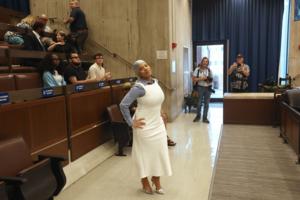
Tania Fernandes Anderson's embattled tenure on Boston City Council is now over
Boston has declared its independence from disgraced City Councilor Tania Fernandes Anderson, whose last day of work after resigning following her conviction on federal corruption charges was July 4.
Fernandes Anderson, 46, pleaded guilty on May 5 to two of six public corruption charges that were lodged against her in a federal indictment last ...Read more
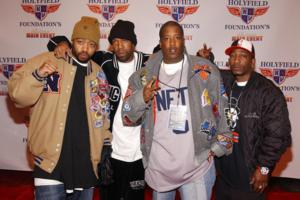
Outlawz rapper Young Noble dead by apparent suicide at 47
Young Noble, a former member of the Outlawz rap group founded in the 1990s by Tupac Shakur, has died by apparent suicide at the age of 47, according to reports.
Noble, who’s real name was Rufus Lee Cooper III, was found dead Friday morning in Atlanta from what appeared to be a self-inflicted gunshot wound, sources told TMZ.
His death was ...Read more

Hundreds rally on July 4 against immigration raids, budget bill in downtown LA
LOS ANGELES — Lawrence Herrera started carrying a folded-up copy of his birth certificate in his wallet last week. He also saved a picture of his passport on his phone's camera roll.
For the 67-year-old Atwater Village resident who was born and raised here, the precaution felt silly. But he's not taking any chances.
"I started hearing, 'He's...Read more
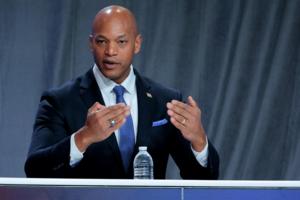
Maryland Gov. Wes Moore announces new energy assistance benefits
BALTIMORE — Households in Maryland struggling with rising utility costs will receive increased energy assistance benefits this year, Maryland Governor Wes Moore announced Thursday.
The expanded aid comes from increased appropriations for the Strategic Energy Investment Fund, which is a state reserve made up of fines paid by utility companies ...Read more

Some politicians cautious about safety in July Fourth parades after lawmaker shootings
MINNEAPOLIS — Waiting in a lineup of floats ready to embark on Eagan’s annual July Fourth parade, DFL Rep. John Huot flinched when he heard a loud pop.
It was a balloon tied to a van behind him, bursting from the heat. But Huot and his family felt a little on edge on the bright, sweltering morning of Independence Day, just a few weeks after...Read more

Measles exposure reported at Wesley Medical Center in Wichita, Kansas
The Kansas Department of Health and Environment has announced that there was a measles exposure this week at Wesley Medical Center in Wichita.
On Friday, the agency gave details of the exposure. It occurred from 10 p.m. Tuesday until 4:45 p.m. Thursday on the fifth floor of the pediatric unit in Building 4. Wesley is located at 550 N. Hillside....Read more

Hurricane center says depression off Florida coast to become tropical storm on way to Carolinas
ORLANDO, Fla. — A tropical depression formed in the Atlantic off the coast of Florida on Friday headed for the Carolinas and expected to become a tropical storm, according to the National Hurricane Center.
In the NHC’s initial 5 p.m. advisory for Tropical Depression Three, its center was located about 100 miles east-northeast of ...Read more
Letter written by Thomas Jefferson while in Annapolis sells for $90,000
BALTIMORE — A significant letter written by founding father Thomas Jefferson sold Friday for the asking price of $90,000 and will return to Maryland, the state where it was penned 242 years ago.
The letter, featuring Jefferson’s large and even right-handed slant “went to a private collector in the greater Annapolis area,” according to a...Read more

'If that means I'm a one-term mayor, then so be it:' Philadelphia Mayor Cherelle Parker puts it all on the line in city workers strike
PHILADELPHIA — Mayor Cherelle L. Parker is putting it all on the line.
In a fiery news conference on the steps of the Philadelphia Museum of Art, Parker made clear on Thursday that she wasn't ready to capitulate in negotiations to end the ongoing city workers strike and delivered a broadside at union president Greg Boulware, who three days ...Read more
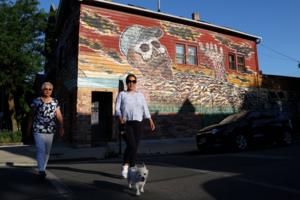
This Independence Day, immigrants face how to celebrate a nation deeply divided over Trump's deportation efforts
The four women sat in camping chairs on 19th Street sipping mix-made mojitos. One was knitting, another talked on her cellphone. Amalia Alejo sang in Spanish and Ana Flores held onto her small white dog.
They looked at home because they were. They sat right outside Flores’ house in Pilsen, laughing as the sun beat down on the quiet Tuesday ...Read more
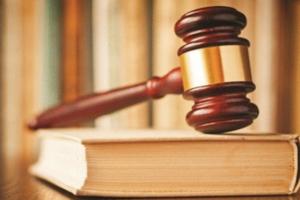
Arrest warrant issued for KC mother accused of threatening to 'bomb' children's hospital
KANSAS CITY, Mo. — An arrest warrant has been issued for a Kansas City woman months after she allegedly made terrorist threats to a children’s hospital, according to court records.
La’toya Summerville is charged in Jackson County Circuit Court with three counts of making terrorist threats after she allegedly told hospital staff she would ...Read more
Gov. Maura Healey ready to cut local project spending if Massachusetts hits financial downturn
BOSTON — Gov. Maura Healey said her budget office is ready to slash millions in legislative earmarks for local projects and will seek the extraordinary power to cut spending across all state government in an effort to prep for potential federal funding cuts that could spell disaster for Massachusetts.
The first-term Democrat also announced ...Read more
Wrongly convicted of murder, Baltimore man receives $2.85 million and an apology
BALTIMORE — A man who spent 27 years in prison for a murder he didn’t commit has been awarded $2.85 million — and a heartfelt apology — by state officials.
“There are no words to express how deeply sorry we are for what was taken from you and for the failure of our justice system,” Lt. Gov. Aruna K. Miller said Wednesday while ...Read more
Hurricane center says system off Florida coast has 70% chance to develop
ORLANDO, Fla. — An area of low pressure formed off the coast of Jacksonville on Friday and could develop into the season’s next tropical depression or storm, according to the National Hurricane Center.
In its 2 p.m. tropical outlook, the NHC said the system had become more defined and was located about 150 miles off the northeast Florida ...Read more

Powerful storms kill at least 3 in NJ, leave thousands without power
Powerful thunderstorms that swept through New Jersey on Thursday killed at least three people and knocked out power to thousands, officials said.
In a social media post late Thursday night, Gov. Phil Murphy said he had been briefed on the “severe thunderstorms that hit Central Jersey … and resulted in fatalities.”
Without providing ...Read more
No veto on controversial election change. Miami mayor already signed it into law
MIAMI — Within hours of the Miami City Commission approving a controversial measure to postpone the upcoming November election to 2026 in order to move the city to even-year elections, Miami Mayor Francis Suarez had already signed the legislation into law.
Suarez does not have a vote on the City Commission, nor is he required to sign ...Read more

Alligator Alcatraz has opened in the Florida Everglades. Here are some takeaways
MIAMI — A state-run detention facility for migrants has opened in the Florida Everglades. Alligator Alcatraz — that is the official name — was assembled in eight days and opened on July 1. President Donald Trump visited the remote site on opening day, built at an old runway near the Miami-Dade and Collier county line.
Here are the top ...Read more
US, Colombia withdraw ambassadors amid accusations of coup plotting
MEDELLÍN, Colombia — The United States and Colombia have recalled their respective ambassadors amid tensions surrounding an alleged plot to oust President Gustavo Petro in which two Florida congressmen were implicated.
Secretary of State Marco Rubio announced that he ordered the recall of John T. McNamara, the acting ambassador in Bogotá, ...Read more
Popular Stories
- 'We are in a crisis': Santa Ana creates emergency fund for families harmed by ICE raids
- Detention center driving out wildlife, damaging Everglades, critics contend
- US, Colombia withdraw ambassadors amid accusations of coup plotting
- Federal contractors improperly dumped wildfire-related asbestos waste at LA area landfills
- 'Chaotic and deeply frightening': Once a global gold standard, US government health guidance is falling apart





